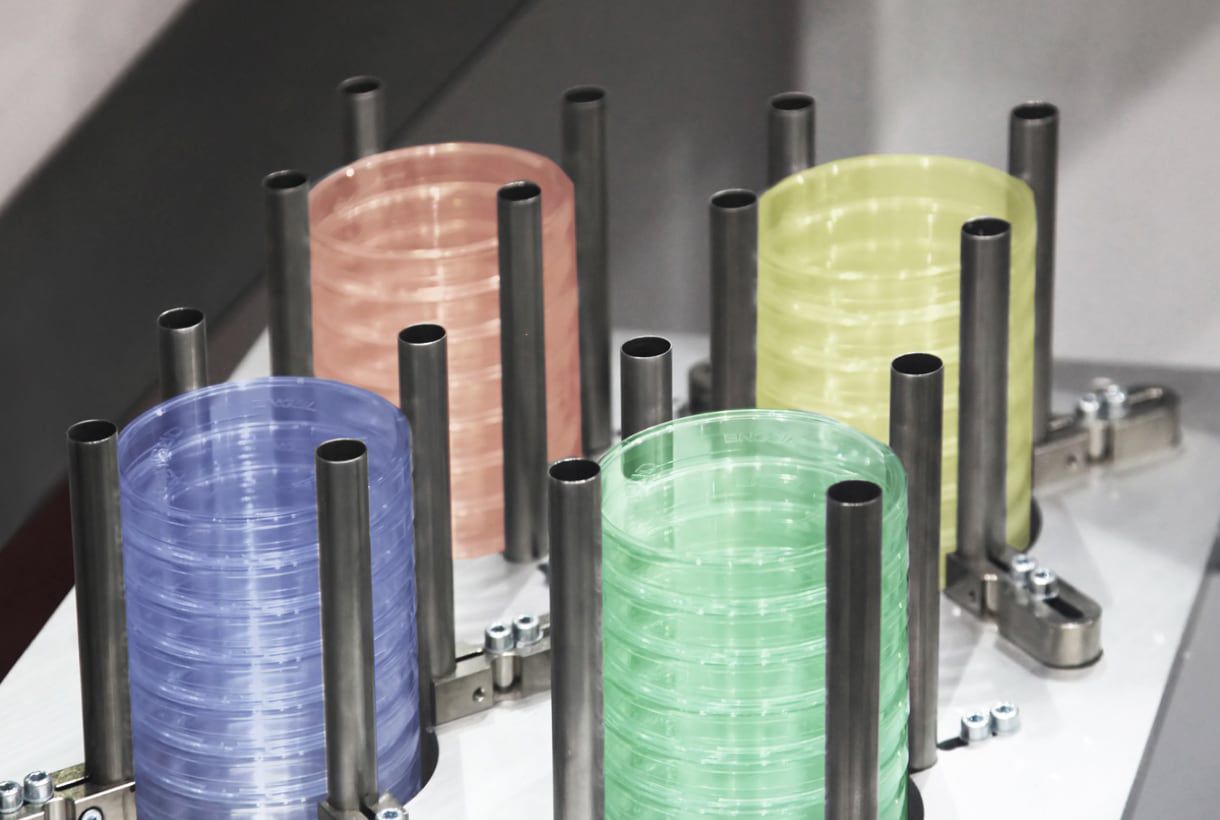It has almost become a cliché to say that manufacturers are under constant pressure to deliver higher quality products at a lower cost. But this cliché happens to be true—especially in the plastics and rubber sector.
Given the sheer breadth of products you manufacture and the seemingly endless number of applications for these products, your target market is complex and constantly changing. Businesses and consumers continue to present you with unique demands around quality, timeline, regulatory compliance, and cost.
Cutting costs while keeping product quality high may be enough to keep you afloat. But if you want to grow your business and box out the competition, you’ll need to do more.
Here are 11 ways to do just that. We’ve organized our thoughts in three areas: optimizing operations, achieving control with machine integration, and connecting supply chains.
Optimizing Operations
What are your biggest obstacles to delivering high-quality products efficiently? If you’re like most plastics and rubber manufacturers, you’re wrestling with volatile raw materials costs and intense price competition.
Here are four good ways to respond:
- Identify and isolate your most common quality problems. You’ll then be much more able to contain the scope of tainted products. This will help you minimize recalls and reduce your non-compliance exposure.
- Establish full tracking around your mold/die management and maintenance. With complete visibility into these business processes, you’ll be able to make much smarter use of your tools for a greater ROI on your investment in equipment.
- Use attribute-based finite scheduling to maximize utilization. Let’s face it: scheduling is incredibly complex for plastics and rubber manufacturers. Doing your finite scheduling on an attribute-based model can at least help you minimize your changeover and cleaning times.
- Report on inventory movement in real time. Find a solution that offers barcoded labeling and packaging to help you ensure you’re always delivering the right materials to customers.
Embed lot traceability into your business processes. When you can track lots in your inventory all the way through your supply chain and shop floor processes—including regrinding and mixing—you gain much greater control over quality.
Achieving Control with Machine Integration
As we mentioned earlier, cutting costs is only one aspect of growing your business profitably—but it’s an important aspect. By identifying more opportunities to control your inventory, optimize your production and labor, and minimize waste, you can fight back against relentless margin pressures.
Focus your efforts in these three areas:
- Empower your operators. With software becoming more and more sophisticated every year, you have new ways to boost your operators’ productivity. Give them a control panel through which they can access all the manufacturing execution system (MES) functions that guides them through all their activities.
- Track overall equipment effectiveness (OEE) in real time. Here’s another area in which modern software can really help you. Look for a solution that also tracks flow rate, cycle times, and other production data. This is a key to driving continuous improvements.
- Don’t forget about inventory levels. Many manufacturers think of bloated inventory levels as part of the cost of doing business. They know they should tackle the problem, but it continues to get pushed to the back burner. You can gain a competitive advantage over many of your peers by using technology to optimize inventory. You’ll not only save money, but also avoid the delays and disruptions caused by stockouts.
Connecting Supply Chains
So far, we’ve mainly discussed ways to get your house in order. How can you respond to competitive pressures that are affecting your customer demand, making order sizes harder to predict, and even threatening your product lifecycles?
Here are three possible approaches:
Connect your entire supply chain in the cloud. On-premise supply chain management (SCM) solutions tend to produce data siloes that keep stakeholders from seeing the complete picture. Cloud-based SCM, on the other hand, can deliver real-time self-service capabilities that foster greater collaboration.
Go deeper with your supply chain planning. When you can forecast demand reliably and balance it with capacity, you’ll have a much easier time delivering on SLAs—even in a highly volatile market.
Increase the flexibility of your master schedule updates. The right technology can help you make timelier course corrections.
These 11 tips will get you started on optimizing your plastics and rubber manufacturing business—but we’ve only scratched the surface. Find out how Plex Manufacturing Cloud can help you reach these goals and more by downloading our solution brochure.
Related Articles

